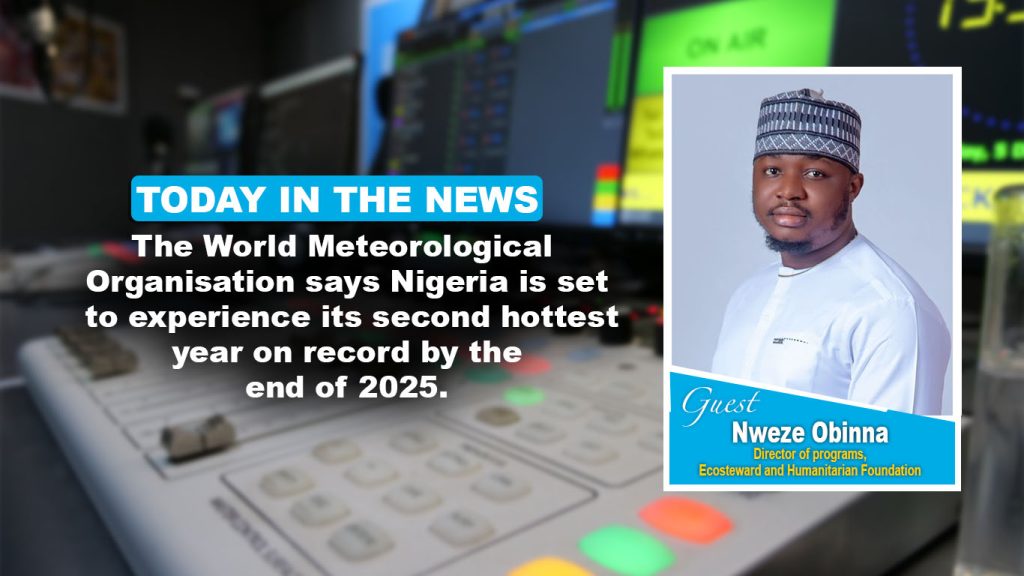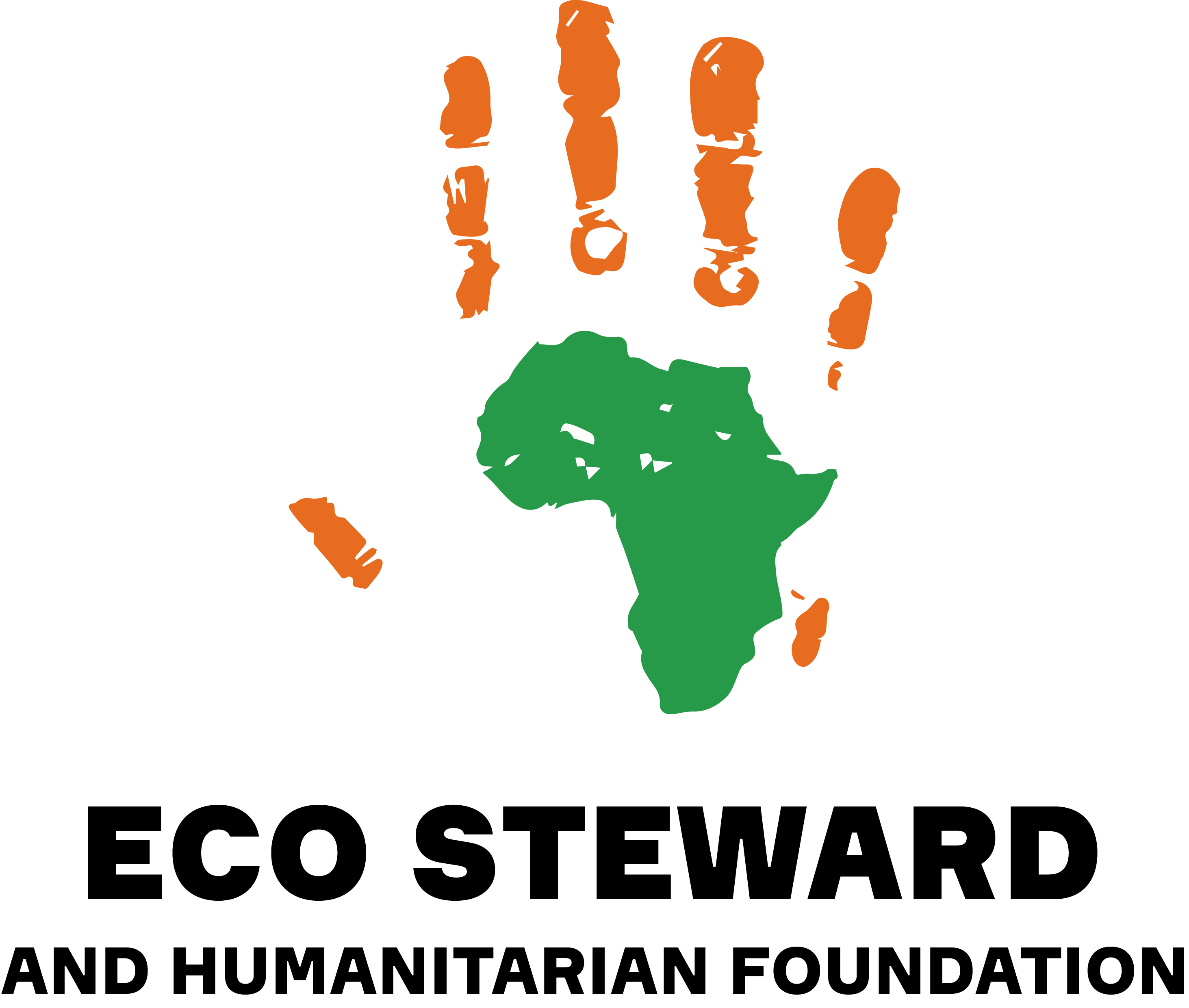
The World Meteorological Organization (WMO) has projected that 2025 is on track to become Nigeria’s second hottest year on record, with average temperatures about 1.42°C higher than pre-industrial levels. This stark revelation comes amid ongoing discussions at COP30, where global leaders are gathered to review progress on climate commitments and chart new pathways for adaptation and resilience.
Earlier this week, I joined RadioNow 93.5 FM Lagos to discuss this urgent issue and what it means for Nigerians. The message is clear, the heat crisis is no longer a future threat; it is our present reality.
Rising Heat, Real Impacts
Across Nigeria, rising temperatures are intensifying heatwaves, droughts, and erratic rainfall.
- In the North, prolonged dry spells are worsening desertification and threatening food security.
- In the South, heavy humidity and flash floods are destroying homes and infrastructure.
- In urban centres, limited greenery and unplanned development trap heat, creating unbearable living conditions.
These conditions are already taking a toll on human health, agriculture, and the economy. Outdoor workers face greater risks of heat stress, crop yields are declining, and power demand continues to rise as more people rely on cooling appliances.
Global Drivers, Local Realities
The WMO’s findings point to rising greenhouse gas concentrations and record-high ocean heat content as major contributors to global warming.
In Nigeria, local drivers such as deforestation, gas flaring, poor waste management, and urban heat islands make matters worse. These interconnected factors amplify the climate crisis and demand urgent, coordinated responses.
Turning Awareness into Adaptation
While global conversations at COP30 focus on emissions reduction, developing nations like Nigeria must equally emphasize adaptation. Communities need early warning systems, climate-resilient infrastructure, sustainable agriculture, and urban greening to withstand extreme heat.
Public awareness also plays a crucial role, knowing how to stay safe during heatwaves, manage water use, and protect vulnerable populations can save lives.
At Ecosteward Foundation, we continue to advocate for community-led adaptation and youth engagement as core strategies for local resilience.
Youth Leadership and Climate Justice
Young people remain at the forefront of climate advocacy and innovation. From green entrepreneurship to digital climate activism, Nigerian youth are developing local solutions that can be scaled nationally.
As COP30 unfolds, youth voices must be central in shaping decisions on adaptation finance and implementation. Climate justice demands that those most affected, yet least responsible, are supported and empowered to drive change.
From Commitments to Action
Nigeria’s climate commitments, as captured in its Nationally Determined Contributions (NDCs), are ambitious. However, translating these into real action requires stronger coordination among federal, state, and local governments, increased climate financing, and transparent monitoring of progress.
As I noted on RadioNow 93.5 FM, “Climate change is not an environmental issue alone, it’s an economic, health, and social development challenge.”
To respond effectively, we must integrate climate resilience into every sector, from education and energy to agriculture and urban planning.
A Collective Call to Action
The WMO’s report is not just a warning; it’s a wake-up call. Nigerians, individuals, communities, private sector actors, and government agencies must all play their part:
• Plant trees and expand green spaces to cool our environments.
• Reduce emissions by promoting clean energy and sustainable transport.
• Support local climate initiatives and hold leaders accountable for promises made.
• Educate and engage others — awareness is the first step toward resilience.
As the global community deliberates at COP30, Nigeria must seize this moment to accelerate local adaptation and lead with innovation.
About the Author
Nweze Emmanuel Obinna is a Director at Ecosteward Foundation in charge of programs. A youth-led organization advancing environmental sustainability, climate education, and community resilience across Nigeria.
